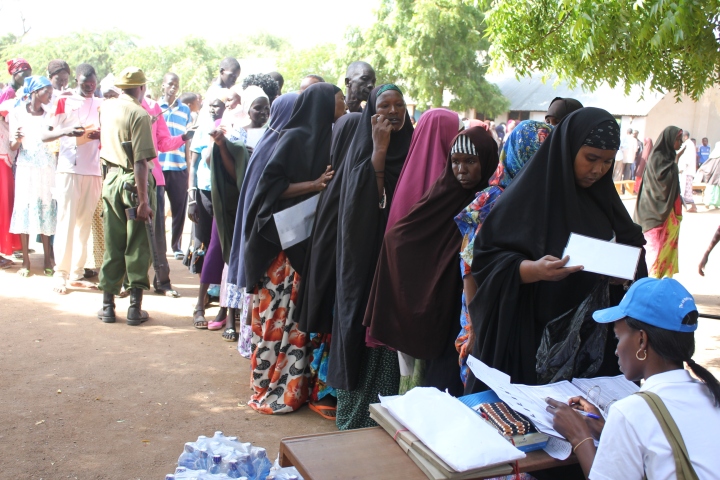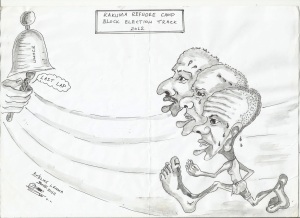Centralized elections were held in Kakuma camp in June this year yet the election process is still to be completed
In the refugee camp of Kakuma, a well organized election took place on 30th June 2012. This was the first election since the camp was established 21 years ago. The election was done through secret ballots, with the aim of creating a change from the previous leadership which it was claimed was based on tribalism.

Elections were conducted by blocks, whereby residents in each of the 144 blocks were to elect their own block chairman and chairlady. As a result there are now a great many leaders at this lower tier level, as opposed to the nationality based situation in the past where each nationality had its own leader.

For political reasons, elections for the zonal and camp management leaders failed to take place as part of the same electoral process as the block leaders. The minority nationalities felt that they might not win representation as a nationality in elections for zonal and camp leaders. According to the electoral committee for the block management committee, the entire election process experienced delays and confusions caused by UNHCR. “Election for the zonal management committee started in December. We’re yet to elect the camp leader, there’s a lot of delays and confusion.” An electoral committee member told Kanere.
In several interviews conducted by KANERE, block leaders expressed negative views that no change was achieved. These leaders argued that the camp constitution was not implemented as it was set down in the new rules which the Agencies had campaigned for and imposed. “We have not embraced any change. We’re only given a lot of work with no pay.” Said a leader in Kakuma 1.
According to the ex-community leaders interviewed by Kanere, some of them accepted the change while many still hung on to the old leadership structure that was rejected by the authorities. Some argued that the current block leaders are not viewed as true leaders since they are not recognized by authorities. “It was still better in the past as nationality leaders were recognized and they were able to address issues affecting individual communities, but the current block leaders are denied access to the Agencies.” Said a Somali ex-community leader.
In some parts of the camp, there are frequent misunderstandings and conflicts of interest reported over service deliveries. While the majority of the block leaders will wish to be zonal leaders, the concerned authority is only creating a mechanism to keep the leaders occupied with what doesn’t benefit them or their communities. “We always have problems when it comes to shelter allocation and water rationing because each block doesn’t have its own water point.” A refugee leader explained at Camp 1.
In terms of community governance it was better in the past while the new blocking style has created an environment where leaders are numerous and disorganized and have no basis for authority. When these leaders were elected the block residents had new hopes that their leaders can be involved in the decision making body to form a better structured society but that has not happened. The block leaders were denied access to UNHCR and Agencies’ premises, which is negatively viewed by block leaders and camp residents. “The leaders feel guilty because they are only seen as symbolic or puppets for someone’s benefit.” An angry leader commented.
According to the block leaders UNHCR and the Government Department for Refugee Affairs fostered this structure in order to create a mechanism of control within the refugee camp. “This move has been understood by the leaders, who are planning to boycott if things will not change in the near future. People cannot enjoy their fundamental rights and freedom.” Ibrahim at Kakuma 1 zone 4.
Practically, all the block leaders in camp were issued with “Leader ID Cards”, but this is valueless since it cannot allow them to access the Agencies and government offices. This shows that the same leaders are not recognized by the authority that pushed them to embrace leadership change in 2011.
Leaders who were interviewed by Kanere journalists complained that the same ID card was written in Red Colors, showing their ID and role they play was not recognized. “This is not a gate pass and does not grant the holder access to Agency office without an appointment!” runs the warning on the leaders’ ID card.
“Leaders are only puppets, this is like blindfolding leaders, are we silent but keen on this game, we shall see if the change claimed will benefit the community or cause negative petition.” Said Nyial.
The camp residents are eagerly waiting the camp leader’s election. People are keen to know whether the governor will have the official power to take decisions. The important critical question will remain, whose purpose and agenda the governor shall serve?
